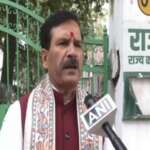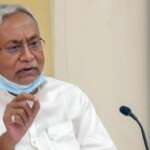When did the Janmashtami start?
About Janmashtami Festival
Janmashtami is an important Hindu festival celebrating the birth of the Hindu god Lord Krishna. It is celebrated on the eighth day of the Krishna Paksha (the dark fortnight) of the month of Shravana, in the Hindu calendar, which usually falls at the end of July or August. It is one of the most revered festivals in the Hindu culture and is celebrated with many customs and rituals. Janmashtami marks the divine appearance of Lord Krishna and commemorates his life and teachings. People engaging in religious activities and attend special puja, or prayers, at home and even in temples. Devotees often fast and stay awake all night, singing devotional songs and performing special pooja for the lord.
The festival of Janmashtami is celebrated in a variety of different ways by different communities. In some parts of India, the festival is celebrated with traditional pujas and processions by the devotees carrying clay idols of infant Krishna. Music and dance forms are performed, such as the traditional raas-leela, a dance-drama re-enactment of Krishna's life and times and the Maha Abhishekam, a sacred bath ritual of the deity's image. Other places celebrate the festival by offering sweets to the god, decorating temples and homes, purifying and beautifying them to make them ready for the celebration.
Janmashtami Holiday – Introduction
Janmashtami is a Hindu holiday that celebrates the birth of Lord Krishna, one of the most popular and beloved incarnations of the Hindu god Vishnu. It is generally observed on the 8th day of the Hindu month Bhadrapada, which usually falls in late August or early September. Janmashtami is celebrated in various parts of the world, including India, Nepal, Sri Lanka, Bangladesh, Pakistan, and Fiji, among others. Each region has its own unique way of celebrating the holiday.
History of Janmashtami
The exact origins of Janmashtami have been lost to history, but it is believed to be several thousands of years old. According to Hindu texts, Lord Krishna was born on the 8th day of the dark half of the Hindu month of Bhadrapada (around August/September). This day is celebrated as Janmashtami, which literally translates as “Eight-day festival.”
The earliest known celebrations of Janmashtami date back to the 5th century CE in the southern India that is now Tamil Nadu. During this time, Hindu stories were regularly performed in temples and during festivals, and Janmashtami was no exception. In the centuries following, Janmashtami celebrations spread across India and eventually to other parts of the world.
Celebrations in India
India is one of the most important places of Janmashtami celebration. The festival is celebrated in temples and households alike with great enthusiasm. Temples usually organize discourses that focus on the stories of Lord Krishna as well as special musical performances. Households typically include prayer rituals, fasting, Jagannath puja, and other activities.
The night before Janmashtami is particularly special. Many temples organize special ceremonies on this night, which often includes singing devotional songs and performing plays and dances that tell the stories of Lord Krishna’s life. Some temples also hold special “dahi-handi” competitions, where participants try to break open a pot of butter suspended high above the crowd.
Janmashtami is also a time for feasting. In northern India, the traditional meal on this day includes a variety of yummy sweets such as kheer, rasmalai, pedas, and halwa.
Celebrations in Nepal
Nepal celebrates Janmashtami with some unique customs and traditions. On this day, Hindus flock to temples to offer special prayers to the Lord Krishna and to receive blessings from him. The temples are decorated beautifully and spiritual discourses are held.
In the days leading up to Janmashtami, devotees observe a fast and are not supposed to consume any kind of grain for a period of one day or more. On Janmashtami, they break their fast with makkhan, a type of homemade butter, which is offered to Lord Krishna. The night before Janmashtami is marked by a special puja, where devotees recite devotional mantras and songs.
Nepalis also conduct a special “batu” ceremony on this day. In this ceremony, devotees make an effigy of Lord Krishna using flowers, leaves, and other items from nature. The effigy is placed in a procession and taken to the temple, where it is placed next to the image of Lord Krishna. This is a symbolic gesture to show that the Lord has accepted the devotees’ offerings.
Celebrations in Sri Lanka
Sri Lanka celebrates Janmashtami in a big way. This is the most important festival in the Hindu calendar in the country, and it is celebrated by both Hindus and non-Hindus alike. On this day, temples and homes are decorated and special poojas are performed in honour of Lord Krishna.
On Janmashtami, Sri Lankans observe a one-day fast and perform worship rituals in temples and homes with great devotion. People usually dress up in traditional clothes and gather in temples in the evening to perform the poojas. Following the poojas, devotees sing devotional songs and perform traditional dances like Thillai and Magam.
At night, there is a special ritual known as “Golu” where dolls of various shapes and sizes are placed in a special area and offered to Lord Krishna. People typically offer garlands, flowers, fruits, and other offerings to the dolls. Following this, special songs are sung to celebrate the birth of Lord Krishna.
Celebrations in Bangladesh
In Bangladesh, Janmashtami is a very important festival that is celebrated widely with enthusiasm and devotion. On this day, people dress up in traditional clothes and visit temples to offer prayers to the Lord.
Temples in Bangladesh organize special religious discourses and plays that tell the stories of Lord Krishna’s life. Visitors can watch these performances and gain spiritual insights.
People also observe a fast on this day and prepare special dishes to offer to Lord Krishna. The traditional meal usually consists of sweets such as pedas, laddus, and rasgullas, as well as savoury snacks like pani-puri.
In the evening, devotees gather in temples to perform puja rituals and offer flowers and fruit to the Lord. A special type of folk dance called the Rabindra Nritya is also performed to celebrate the birth of Lord Krishna.
Celebrations in Pakistan
Janmashtami is celebrated in Pakistan with enthusiasm, though in a more subdued form than in India and other South Asian countries. People typically fast on this day and visit temples to offer prayers to the Lord Krishna. The temples are often decorated with lights and flowers.
In the evening, devotees gather to participate in special rituals such as bathing the Lord Krishna’s idol with milk and other holy liquids, followed by the offering of flowers and fruits. At night, religious discourses and plays are organized in temples where people can hear stories of Lord Krishna.
Celebrations in Fiji
Fiji has a long and rich Hindu tradition, and Janmashtami is celebrated widely with enthusiasm. On this day, temples are decorated with colorful lights and flowers. Devotees observe a strict fast throughout the day and offer special poojas to Lord Krishna.
In the evening, people gather to perform special rituals and dances. The festive mood is enhanced by the singing of devotional songs. In the days leading up to Janmashtami, ashrams and temples organize special discourses on the life of Lord Krishna.
In recent years, many other Hindu festivals, such as Diwali and Holi, are celebrated in Fiji along with Janmashtami. This adds to the festive atmosphere of the day.
Conclusion
Janmashtami is celebrated in various parts of the world, each with its own set of traditions and customs. It is a day of joy and happiness, and a time for devotees to reconnect with the Lord and seek his blessings.
How to Say "Janmashtami" In Different Languages?
- Afrikaans
- Janmashtami (af-ZA)
- Bengali
- জন্মাষ্টমী (bn-BD)
- Dutch
- Janmashtami (nl-NL)
- English
- Janmashtami (en-US)
- English
- Janmashtami (en-GB)
- Hindi
- जन्माष्टमी (hi-IN)
- Indonesian
- Janmashtami (id-ID)
- Japanese
- ジャンマシュタミー (ja-JP)
- Korean
- 잔마 샤트미 (ko-KR)
- Malay
- Janmashtami (ms-MY)
- Mandarin
- 沙摩曇 (zh-CN)
- Portuguese
- Janmashtami (pt-PT)
- Russian
- Джанмаштами (ru-RU)
- Spanish
- Janmashtami (es-AR)
- Tagalog
- Janmashtami (tl-PH)
- Thai
- มาสตัมมีตา (th-TH)
- Turkish
- Janmashtami (tr-TR)
- Ukrainian
- Джанмаштамі (uk-UA)
Janmashtami Also Called
Krishna Janmashtami or Gokulashtami.Countries where "Janmashtami" is celebrated:
- :: Asia
- :: Bangladesh
- :: India
- :: Nepal
- :: Pakistan
- :: Sri Lanka
- :: Europe
- :: United Kingdom
- :: Oceania
- :: Fiji
FUN FACT:
In year 1874, Janmashtami is celebrated on August 7 for the first time.FESTIVAL CHECK: We strive for accuracy and fairness. But if you see something that doesn't look right, please click here to contact us!

“BJP is poisoning education and trying to spread hatred…” : RJD leader Mrityunjay Tiwari over calendar row
Patna (Bihar) [India], November 28 (ANI): Rashtriya Janata Dal leader Mrityunjay Tiwari on Tuesday slammed the Bhartiya Janata Party for allegation of limiting the number of holidays for schools in Bihar during Hindu festivals and increasing it for Muslim festivals and said that BJP has become issueless, they are mixing poison in education and trying to spread hatred and enmity between peoples. “Politics on an important subject like education should not be done through the prism of religion and quality education and improvement in education is continuously happening under Nitish Tejashwi’s government. Nitish-Tejashwi’s government is determined to provide quality education, but the holiday table that has been released is for the year 2024. In that, those people from the BJP…

BJP calls Bihar govt ‘anti-Hindu’ after scrapping holidays for Rakshabandhan, Janmashtami
PATNA: Bihar education department has courted controversy after it scrapped holidays for festivals like Rakshabandhan and Janmashtami and curtailed holidays for Diwali, Chhath and Durga Puja but instead increased number of holidays for Eid-ul-Fitr and Eid-ul-Adha (Bakrid). In an unprecedented move, the education department’s annual calendar for Standard I to Standard XII. Earlier, the district administration was responsible for declaring holidays for election schools while the secondary school directorate was authorised to declare holidays for secondary and higher secondary schools. As per the order issued by the education department, there will be summer vacation for school students from April 15 to May 15. During the summer vacation, teachers and non-teaching staff will be attending their duties at schools like other…

India News | BJP Attacks Nitish Govt over ‘reduction in Hindu Holidays’ in Schools | LatestLY
Patna, Nov 28 (PTI) The Nitish Kumar government in Bihar on Tuesday came under heavy opposition fire for alleged reduction in “Hindu holidays”, proposed for government schools across the state for next year. Alleging that it is an assault on Hindu sentiment, the BJP demanded immediate withdrawal of the proposed calendar. Also Read | Uttarakhand Tunnel Rescue Operation: Congress Congratulates Agencies Engaged in Rescue Ops at Silkyara Tunnel. The education department, however, stated that the confusion has arisen because of two notifications it brought out on Monday, which pertained to separate holiday calendars for Hindi and Urdu medium schools. The department made it clear that the total number of holidays proposed for 2024 was 60, “the same as the preceding…

Teachers’ Unions Oppose Government’s New Holiday Calendar in Bihar – Latest News | Patna News – Times of India
Patna: The teachers’ unions in the state on Tuesday opposed the education department’s new holiday calendar for the year 2024 demanding the government to withdraw it. Despite an increase in the number of holidays for summer vacation from 20 to 30 days for the students, it will be compulsory for principals, teachers and non-teaching staff to be present in the school during the summer break for academic or administrative work.The parent-teacher meetings will also continue to take place during this period. Manoj Kumar, the working president of the Bihar Primary Teachers Association, said summer vacations are not just meant for students but for teachers as well. “Other government employees get 33 days of earned leave while we have only for…

Bjp Attacks Govt Over New Holiday Calendar | Patna News – Times of India
Patna: BJP on Tuesday attacked the Grand Alliance government over alleged ‘curtailment’ of holidays in government schools on the occasion of many Hindu festivals and adopting a policy to appease the minority community, claiming that the number of holidays for some Muslim festivals have been “increased”. The BJP and the Akhil Bhartiya Vidyarthi Parishad also asked the state government to withdraw the new holiday calendar or they would launch a statewide agitation against the controversial decision. State’s education minister Prof Chandrashekhar, however, said, “The new holiday calendar was not decided at the level of the state government. If there is any discrepancy, it will be revised.” As the controversy took a political turn, the education department on Tuesday evening came…

BJP accuses Nitish of appeasement over new Holiday calendar, JDU says BJP raising a non-issue
Patna (Bihar) [India], November 28 (ANI): An all-out war of words has broken out between the BJP and the ruling BJP-RJD in Bihar after the state government issued a new Holiday calendar for school. The BJP has accused the Bihar government of appeasment claiming that Muslim holidays have been increase while those on Hindu religious festivals have decreased. “People say that in Bihar and UP, as the age increases, people become religious. Nitish Kumar is becoming religious but by turning religious towards other religions, He is forgetting the Hindu religion. Do one thing, get a resolution passed in the assembly that Bihar is going to be made an Islamic state and the first religion will be Islam and send it…

India News | BJP Accuses Nitish of Appeasement over New Holiday Calendar, JDU Says BJP Raising a Non-issue | LatestLY
Patna (Bihar) [India], November 28 (ANI): An all-out war of words has broken out between the BJP and the ruling BJP-RJD in Bihar after the state government issued a new Holiday calendar for school. The BJP has accused the Bihar government of appeasment claiming that Muslim holidays have been increase while those on Hindu religious festivals have decreased. “People say that in Bihar and UP, as the age increases, people become religious. Nitish Kumar is becoming religious but by turning religious towards other religions, He is forgetting the Hindu religion. Do one thing, get a resolution passed in the assembly that Bihar is going to be made an Islamic state and the first religion will be Islam and send it…

